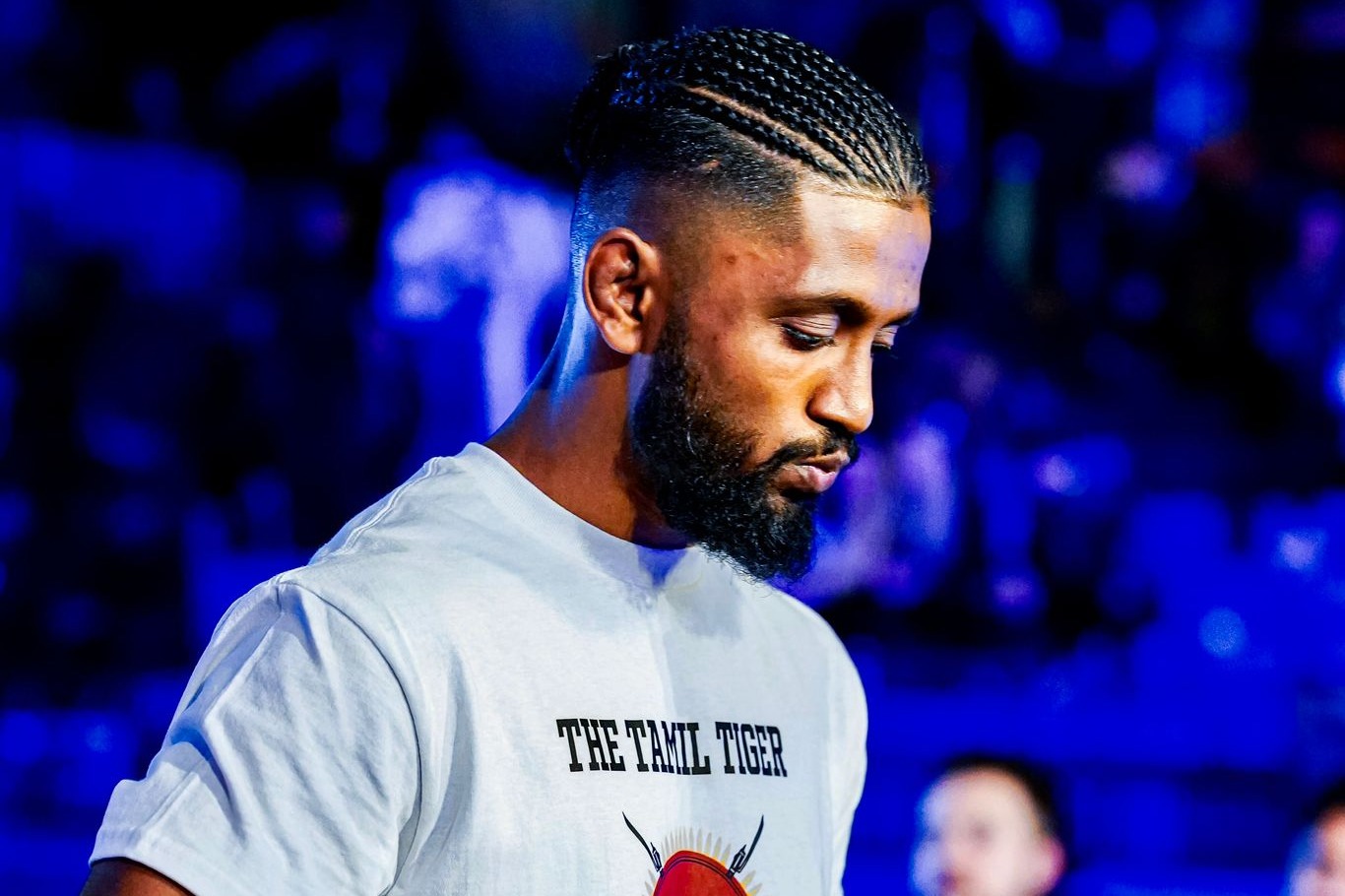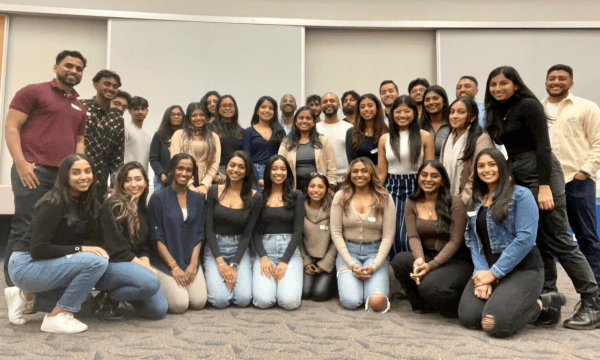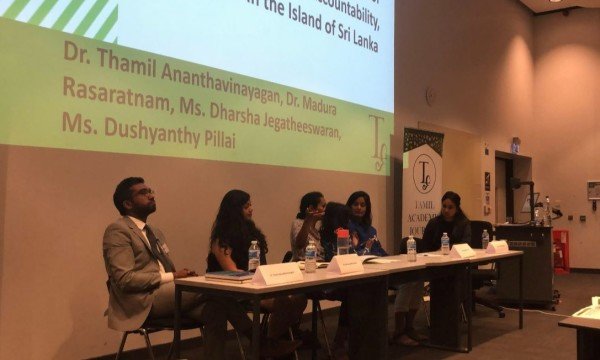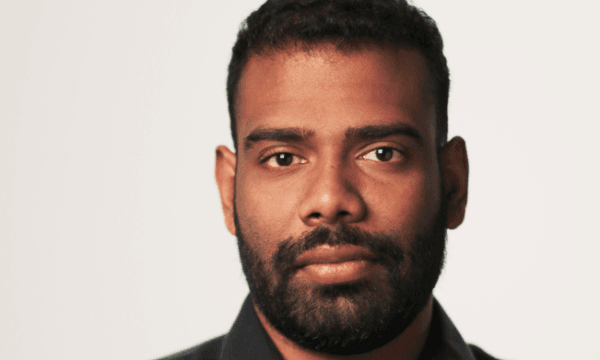
Step into the world of Mixed Martial Arts (MMA), a sport that's taken the globe by storm. Among its rising stars is Kenu, also known as @TamilTigerMMA, whose career trajectory has been rocketing since his debut in 2018.
I interviewed Kenu to learn about his upbringing in MMA, how his Tamil identity influences his career, and his achievements thus far. Keep reading to discover how Kenu overcame discrimination to become a fighter and coach.
Meet your match at myTamilDate.com!
At just 25, Kenu is a seasoned MMA fighter and Coach from London. His journey in martial arts began at the tender age of nine when he first stepped into a Karate dojo. Competing in Karate on a national and international level ignited an early passion for combat sports, eventually leading him to compete in Muay Thai and kickboxing and then move to MMA.
Kenu elaborates that growing up in South East London as one of the only South Asian and Tamil people in school, he encountered regular physical conflict with others with everyone no matter the age. “When I was attending school, you had to be able to defend yourself to be respected. If you couldn't, you would get handled. I was always considered a target in my early school years till I decided to change some things.” As a result, Kenu shares that his childhood experience was a pivotal moment that led him to train and fight as seriously as necessary.
Delving deeper into Kenu’s narrative, I asked him, “Did you face any discrimination due to your Tamil heritage?”
Kenu explained that being a South Asian, dark-skinned Tamil made him a target. “I don't think they even realized their comments were racist. When you give people the slightest idea that they can do whatever they want, they will go overboard. That happened in my early school life, which led to me being overboard with my reactions, which helped as people decided to stop. ”
Kenu’s experience with discrimination led him to start training in MMA not to be violent but to control that violence. “I decided to channel that energy into training, so I had an outlet for my frustration.”
I asked Kenu, “What made you want to pursue MMA full-time as a career?”
Kenu shared that after he started training, he got into more conflicts because he would retaliate to any provocation. This made him realize he needed to control himself, and for that, training more consistently was crucial. He started training six days a week.
“I was starting to feel invincible and thought I could deal with anything with my fists. Especially because it was working, to a young boy, it would feel great. However, I started to see the importance of balance. Training became a humbling experience; it kept me grounded. As I started to improve, this progress made me want to start competing.”
I asked, “Does your way of thinking in MMA apply to your everyday philosophy of life outside fighting?”
Kenu said yes. He learned some important lessons that he can apply to his life. “It's not just about fighting. I'm focusing a lot on the mind and physical training, and the key word here is balance. With balance, you can do anything well. Without balance, everything will go wrong in the long term.”
I asked Kenu about the earliest achievement of his career.
He shared that his first win in a cage in 2018 gained him recognition. It was a Kickboxing match in Leicester, in the north of the United Kingdom, when he was studying at university. He won by TKO in Round 1. He took the Tamil Eelam flag and proudly raised it high. The moment went viral all over social media—Facebook, Instagram, everywhere. That was his first big recognized achievement, and all the Tamils acknowledged it. It was quite a big deal at the time.
I followed Kenu’s story by asking, “How does your culture play a role in what you do as an MMA fighter?”
Kenu responded, “Being Tamil means everything because I am Tamil.” He shared that when he fights, he represents himself and his heritage. “I fight fiercely and am an all-rounded MMA Fighter, able to mix my striking and grappling well based on the given situation. I've never been an easy opponent.”
Kenu explained that when he’s backstage before a fight, he reflects on everything that’s happened to the Tamil people along with his personal history and struggles. These thoughts fuel him in preparation for the fight.
I asked, “What’s a memorable moment in your career that has significantly impacted you?”
Kenu says a memorable moment would be when my grandma witnessed his first win in a cage. His second-to-last fight was particularly significant for his professional growth. This fight allowed him to gain substantial recognition, growing his social media following from 5,000 to over 100,000 in eight months.
While Kenu is a terrific fighter, he’s also a skilled coach. I asked him, “As a coach, what principles do you emphasize to your students?”
He shares that mental training is as important as physical training, if not more important. Just knowing that is not enough; you must make moves towards improving your mental health the same way you physically train every day.
“Training taught me not to instigate conflicts with strangers because you don’t know what they are capable of. You’ll never see me being rude to people for this reason. I teach my students the same principle: just because you're trained in MMA doesn’t mean you should start fights. You need to stay calm and only act when someone invades your personal space.”
Kenu emphasizes the importance of never letting anyone get close to you and never getting close to anybody else.
I asked Kenu to share words of wisdom with aspiring MMA fighters starting their journey.
Kenu highlighted the following takeaways: First, find a good coach, someone with whom you can develop a personal relationship and speak comfortably—second, practice strength and conditioning (S&C). The primary purpose of S&C isn’t just to get stronger or better but to prevent injuries. Finally, “There will be a lot of ups and downs and a lot of learning along the way. Have a good relationship with learning, especially when you get better. There will be people who doubt you or criticize you. Embrace it all and know you can only control your actions and push forward.”



























